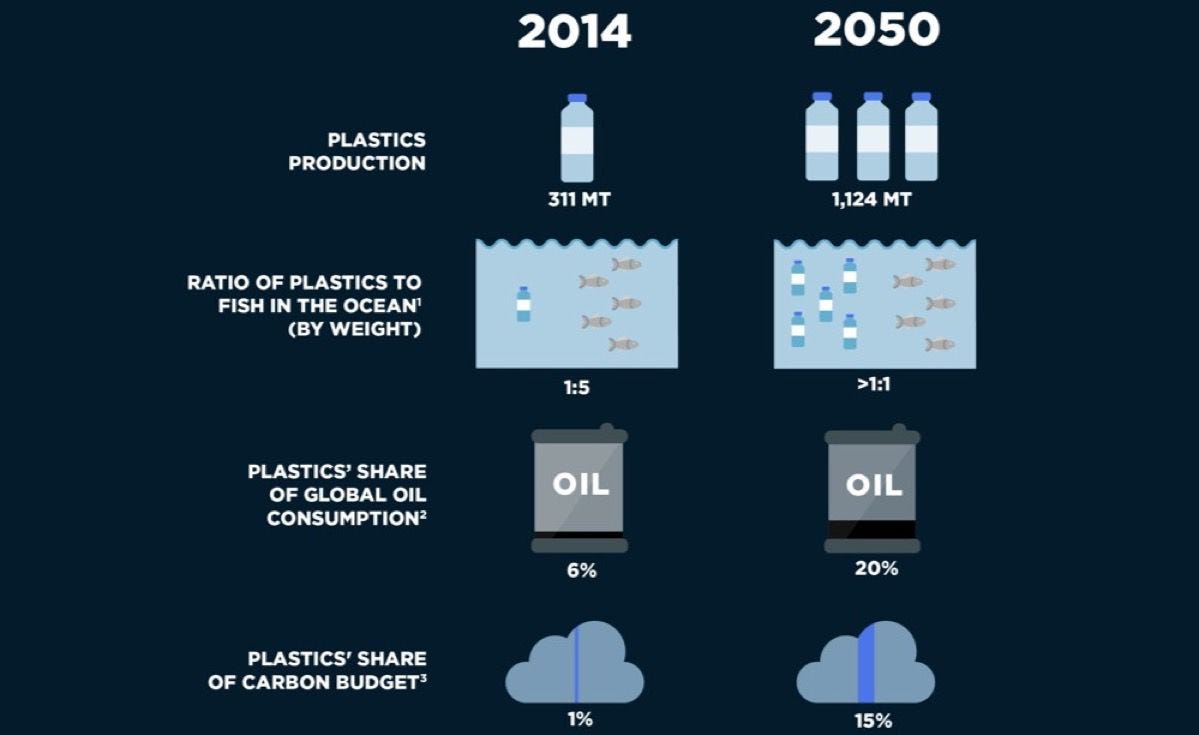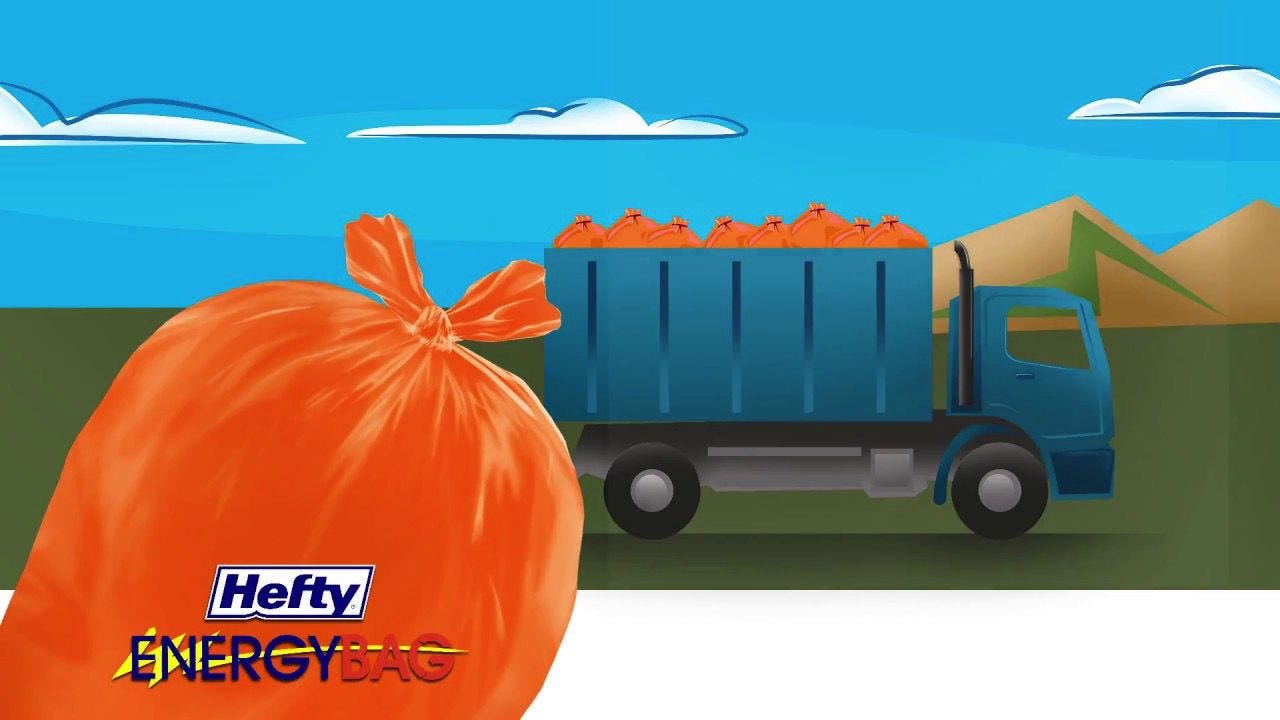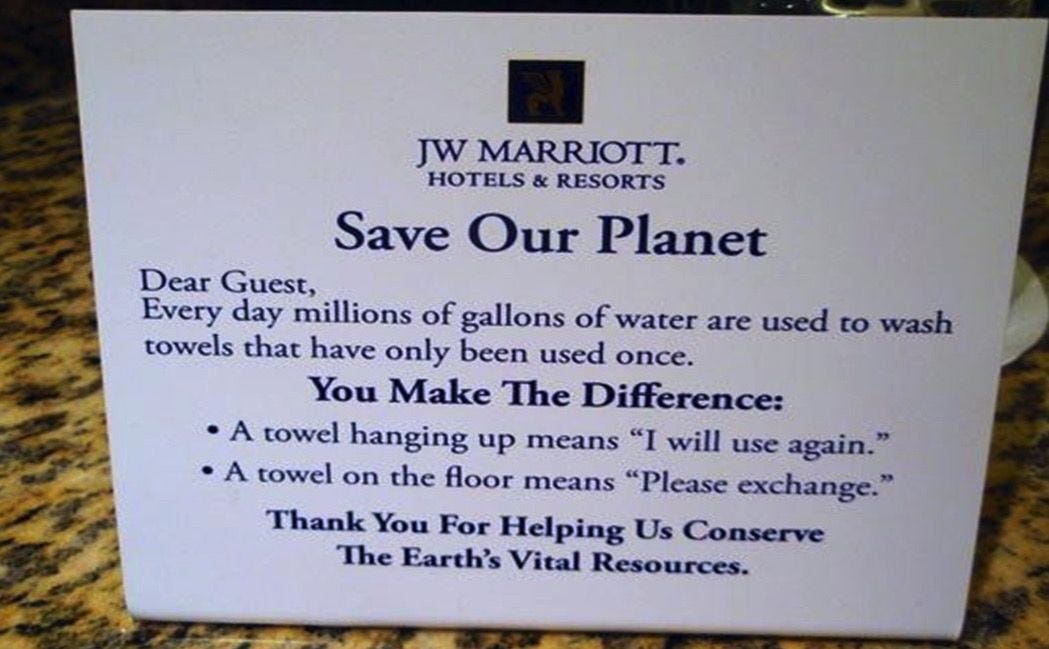On This Earth Day, Take Personal Responsibility to End Plastic Pollution
Politicians including Donald Trump and Pierre Poilievre want to bring back plastic straws; here's why they shouldn't.
The Canadian election is just a few days away and Conservative leader Pierre Poilievre has found a new issue to run on: scrapping the federal government's ban on single-use plastics and bring back plastic straws and disposable grocery bags. I wrote this for Treehugger years ago and they have deleted it, so I am republishing it for this Earth Day. This was written long before we knew about the problems of microplastics.
While much of the energy and drive behind Earth Day has disappeared, this year has an important theme: Ending plastic pollution. The Earth Day Network tells us:
From poisoning and injuring marine life to disrupting human hormones, from littering our beaches and landscapes to clogging our waste streams and landfills, the exponential growth of plastics is now threatening the survival of our planet... The world must perceive plastics not only as the environmental challenge of global proportions but a symbol of the values that need to change to build a more sustainable and just world.
But the problems of plastic make it much more than just a symbol of values, because it is so deeply interwoven with our fossil fuel driven economy. In his book Energy and Civilization: A History, Vaclav Smil wrote that "every economic activity is fundamentally nothing but a conversion of one kind of energy to another" and that fossil fuels are particularly intense form of energy; they ARE the economy. And plastics are solid fossil fuels.
As the Ellen MacArthur Foundation has noted,
Plastics and plastic packaging are an integral and important part of the global economy. Plastics production has surged over the past 50 years, from 15 million tonnes in 1964 to 311 million tonnes in 2014, and is expected to double again over the next 20 years, as plastics come to serve increasingly many applications.
And as Sami has noted, less and less of fossil fuel output is going to be going into cars as electric cars take more of the market.
So in fact, plastics are likely to become far more important as a consumer of fossil fuels. That's why the industry is pivoting to plastic and investing $ 180 billion in new plants to produce 40 percent more plastic.
Ellen Macarthur Foundation/CC BY 2.0
The Ellen MacArthur Foundation predicts that by 2050 plastics will consume 20 percent of all oil, will produce 15 percent of the world's CO2 and there will be as much plastic in the ocean as there are fish.
© Hefty Energy Bag
For the fossil fuel industry, that’s just fine. If they can’t dump it in the ocean, they will just burn it as fuel; they already have their Keep America Beautiful people marketing leftover plastic as “bags of energy”; as I wrote earlier, “they are fooling us into thinking that burning it is virtuous, that we have a bag of energy, not a bag of garbage. How stupid do they think we are?”
The Earth Day people call plastics “a symbol of the values that need to change to build a more sustainable and just world.” But they are much more than that; they are a key component of the fossil fuel economy that maximizes energy flows and hence money and growth and progress. Getting rid of single-use plastic is as abhorrent as getting rid of cars.
This is why the politicians ban plastic bag bans, why they promote coal mining and gas fracking and get rid of fuel economy rules. It’s why they claim that Earth Day is run by environmental whackos who want to confiscate private property and celebrate it on Lenin’s Birthday.
Plastics are fossil fuels and are part of the energy economy that has given us “economic expansion and increasing complexity.” Vaclav Smil asks if we can cut back on our use of fossil fuels that give us plastics and fertilizers and automobiles and jet planes.
Can we reverse these trends by adopting the technically feasible and environmentally desirable shift to moderated energy uses? Can we continue human evolution by concentrating only on those aspects that do not require maximization of energy flows, can we create an energetically invariable civilization that would be living strictly within its solar/ biospheric limits? Could such a shift be accomplished without eventually converting to a no-growth economy and reducing the current global population? For individuals, this would mean a no less revolutionary delinking of social status from material consumption.
This is the fundamental issue about plastics that we should consider this Earth Day. It's not just about straws and plastic bags, it is about our entire way of life.
JW Marriott wants to save our planet/via
A lot of people gave up on Earth Day because it felt like the entire movement got co-opted by big corporate interests; that "Saving the Planet" was nothing more than saving Marriott a couple million dollars on laundry. You have no idea the number of Earth Day pitches in our inboxes promoting green products.
But the battle against plastic is not superficial or silly. It is about trying to live within our solar/ biospheric limits. It is about changing the way we do things. And Earth Day is a good day to start getting serious about it.








Absolutely Lloyd. Great suggestion for personal action on the Earth Day and no plastic bags for Doug Ford in Ontario.
We see flimsy bags that are compostable here in some Northern Virginia stores and a lot more people have their own bags for the supermarket but I’m not sure if it’s even half yet as both paper and plastic bags are still offered for a slight price. More hotels show the earth friendly signs re towels but not all of them are actually implementing it - unless it’s one where you don’t see the maids every day.